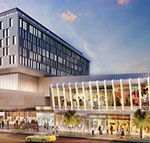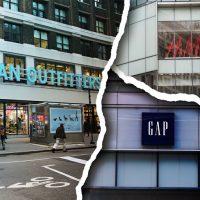Empire Outlets was meant to draw “New Yorkers and visitors from across the world.” The pandemic has put that dream on hold — along with its debt payments.
BFC Partners, the developer behind the 340,000-square-foot retail complex on Staten Island’s North Shore, is months behind on payments on its loan from the New York City Economic Development Corporation, according to corporation reports cited by The City. The project cost $350 million, about $100 million of which was funded through state and city subsidies.
Read more


The documents also said the project had not been delivered by its targeted completion date. Missing such targets could lead to financial penalties under the developer’s lease agreement with the Industrial Development Agency, which requires a base rent of $1.
The outlet mall has reopened since temporarily shuttering because of coronavirus, but tourism and visits to Staten Island have plunged. Daily ferry rides have fallen to under 23,000 a day, a 65 percent drop from a year ago.
The outlet mall opened in May 2019, but some of the project is still under construction. It was supposed to sit next to the world’s largest Ferris Wheel, which was eventually scrapped after facing cost overruns, lawsuits and long delays.
About half of Empire Outlets’ retail space remains empty, according to The City. Developer BFC Partners declined to comment to the publication.
Long before the pandemic, the city was plagued with retail vacancies. But now, even “credit-worthy” tenants are behind on rent payments, putting landlords in a precarious position when it comes to making their own mortgage payments. Many of those disputes are now playing out in court. [The City] — Keith Larsen
